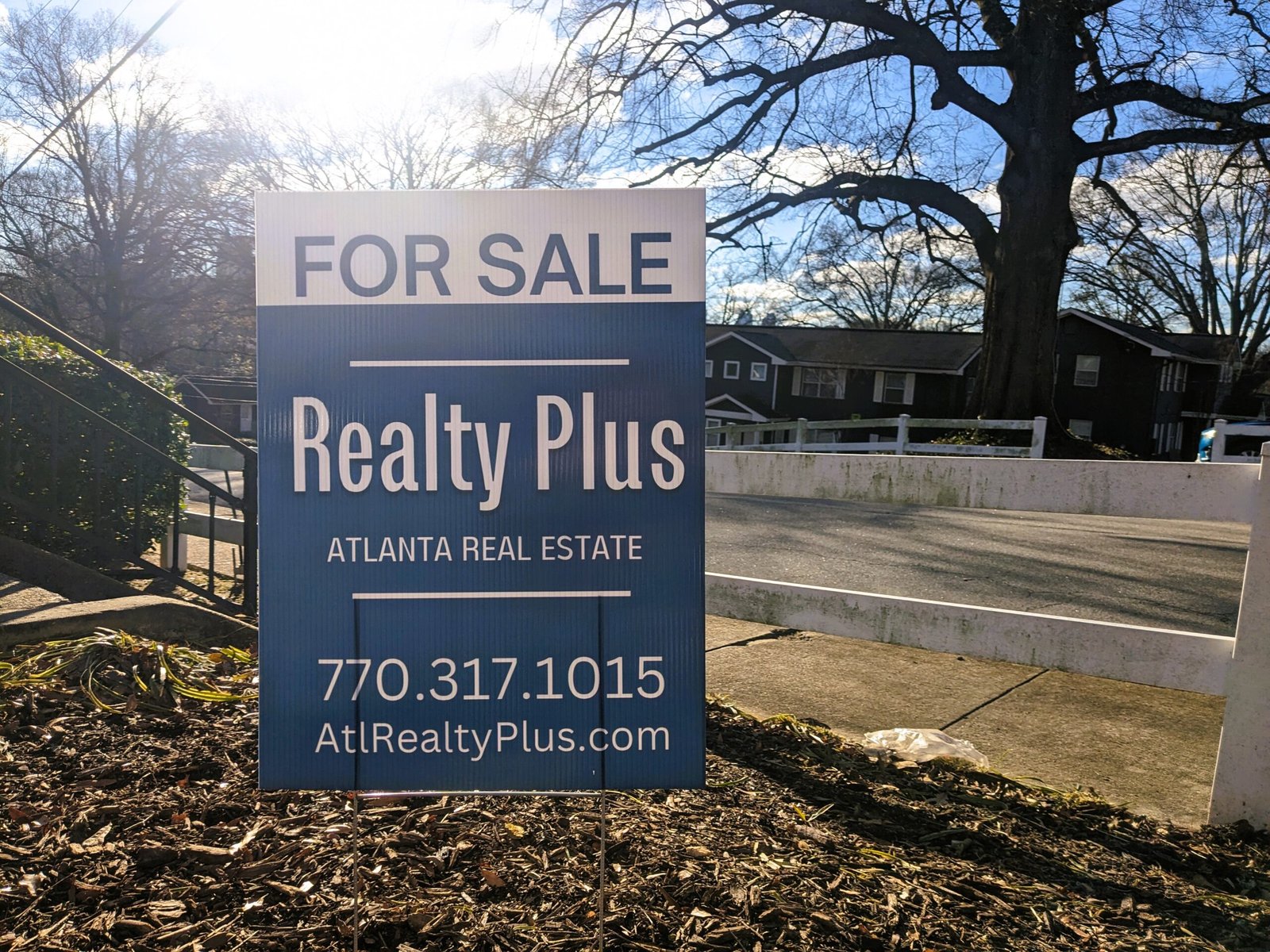

- Atlanta Real Estate, FSBO Homes, Owner Financing Homes, Realty Investment, Smart Contracts, Top News
Mastering Lease Options: A Flexible Strategy for Real Estate Investors in Atlanta
- By Rich Shelor
What Are Lease Options?
Lease options are a powerful real estate investment strategy that combines the benefits of leasing a property with the opportunity to purchase it later. This approach is especially useful in markets like Atlanta, where property values are rising, and demand for rental housing is strong. For both new and experienced investors, lease options provide a way to control valuable assets with relatively low upfront costs while keeping multiple exit strategies open.
In this guide, we’ll explore what lease options are, how they work, their benefits and risks, and how you can successfully implement them in the Atlanta real estate market.
Understanding Lease Options
A lease option is a contractual agreement between a property owner (the lessor) and a tenant (the lessee), where the tenant leases the property for a specified period with the option to purchase the property at an agreed-upon price before or at the end of the lease term. The lease option agreement typically consists of two parts:
The Lease Agreement: This is a standard lease that outlines the terms of the tenant’s occupancy, including the rent amount, lease duration, and maintenance responsibilities.
The Option Agreement: This part grants the tenant the exclusive right (but not the obligation) to purchase the property during or at the end of the lease term at a pre-determined price. The tenant usually pays a non-refundable option fee for this right, which can be credited toward the purchase price if the option is exercised.
Key Components of a Lease Option Agreement
To effectively use lease options, it’s important to understand the key components that make up the agreement:
Option Fee: This is the upfront, non-refundable fee paid by the tenant to secure the option to purchase the property. It typically ranges from 2% to 5% of the purchase price and can be credited toward the down payment if the tenant decides to buy the property.
Purchase Price: The price at which the tenant can purchase the property. This is usually agreed upon when the lease option agreement is signed, offering the tenant protection against market fluctuations.
Lease Term: The duration of the lease, usually ranging from one to three years. This gives the tenant time to improve their credit score, save for a down payment, or decide if they want to purchase the property.
Rent Credit: A portion of the monthly rent that is credited toward the purchase price. This incentivizes the tenant to make timely rent payments and stay committed to the eventual purchase.
Maintenance Responsibilities: These are typically shared between the tenant and the property owner, with the tenant often taking on more responsibility than in a standard rental agreement.
Why Lease Options Work Well in Atlanta
Atlanta’s real estate market is characterized by rapid growth, a diverse population, and a mix of urban and suburban environments. These factors create a fertile ground for lease options as a flexible and profitable investment strategy. Here’s why:
Strong Demand for Rental Housing: Atlanta’s booming economy and population growth have led to a strong demand for rental properties. Lease options appeal to tenants who want to transition from renting to homeownership but need time to improve their financial situation.
Rising Property Values: In a market with rising property values, lease options allow investors to lock in a purchase price today, potentially buying the property at a discount in the future.
Flexible Exit Strategies: Lease options provide multiple exit strategies for investors. If the tenant exercises the option, you profit from the sale. If not, you keep the option fee and rent credits and can lease the property to another tenant or sell it at market value.
Attracting Quality Tenants: Tenants who enter into lease option agreements are often more committed to maintaining the property, as they have a vested interest in eventually owning it.
The Benefits of Lease Options for Investors
Lease options offer several advantages to real estate investors, particularly in a competitive market like Atlanta:
Low Upfront Investment: Lease options typically require a smaller upfront investment compared to traditional property purchases. This allows investors to control valuable real estate assets without significant capital outlay.
Predictable Cash Flow: With lease options, you receive regular rental income while potentially earning additional profits from the option fee and eventual sale of the property.
Risk Mitigation: By locking in the purchase price upfront, you protect yourself against potential market downturns. Additionally, if the tenant decides not to exercise the option, you still retain ownership of the property and can re-lease or sell it.
Tax Benefits: Lease option agreements can offer tax advantages. For example, the option fee is typically treated as rental income, which may be taxed at a lower rate than capital gains. Additionally, you can deduct property-related expenses, such as mortgage interest and maintenance costs, from your taxable income.
Flexibility in Negotiation: Lease options provide flexibility in structuring the agreement. You can negotiate the option fee, purchase price, rent credits, and lease term to fit your investment goals and market conditions.
How to Structure a Lease Option Deal in Atlanta
When structuring a lease option deal, it’s crucial to carefully consider the terms of the agreement to ensure that it aligns with your investment goals and market conditions. Here’s how to approach it:
1. Research the Market
- Conduct thorough research on the Atlanta real estate market, focusing on property values, rental demand, and economic trends in specific neighborhoods. This will help you determine a fair purchase price and set appropriate rent and option fees.
2. Set a Competitive Purchase Price
- The purchase price should be set slightly above the current market value to account for appreciation during the lease term. However, it should remain competitive to attract potential tenants.
3. Determine the Option Fee and Rent Credits
- The option fee should be substantial enough to demonstrate the tenant’s commitment but affordable enough to attract interest. Rent credits should provide a meaningful incentive for the tenant to pay rent on time and eventually purchase the property.
4. Draft a Comprehensive Agreement
- Work with a real estate attorney to draft a clear and comprehensive lease option agreement. It should outline all terms, including the lease duration, option fee, purchase price, rent credits, maintenance responsibilities, and what happens if the option is not exercised.
5. Market the Property
- Advertise the property to potential tenants who may be interested in eventually owning a home. Highlight the benefits of the lease option arrangement, such as the opportunity to lock in a purchase price and build equity over time.
A Hypothetical Case Study: Lease Options in Atlanta
Let’s consider a hypothetical case study to illustrate how a lease option deal might work in Atlanta:
- Property: A single-family home in West Midtown, Atlanta, valued at $350,000.
- Lease Term: 3 years.
- Option Fee: 3% of the purchase price, or $10,500, paid upfront.
- Monthly Rent: $2,000, with $300 credited toward the purchase price each month.
- Purchase Price: $365,000 (locked in at the time of the agreement).
Scenario 1: The Tenant Exercises the Option
After three years, the tenant decides to purchase the property. They have accumulated $10,800 in rent credits ($300 x 36 months), which, along with the option fee, is applied to the purchase price. The tenant finances the remaining $343,700 through a mortgage. As the investor, you sell the property at a profit and receive the remaining balance.
Scenario 2: The Tenant Does Not Exercise the Option
If the tenant decides not to exercise the option, you retain the option fee and rent credits. You can then lease the property to another tenant, potentially repeating the lease option strategy, or sell the property at its current market value, which may have appreciated.
Potential Risks and Challenges
While lease options offer many advantages, it’s important to be aware of potential risks and challenges:
Market Fluctuations: If the market value of the property declines during the lease term, the tenant may choose not to exercise the option, leaving you with a property that may be worth less than the agreed-upon purchase price.
Tenant Default: If the tenant fails to pay rent or breaches the lease agreement, you may face legal challenges in evicting them and recovering lost income.
Legal Complexities: Lease option agreements can be complex, and it’s important to ensure that all terms are clearly defined and legally binding. Consulting with a real estate attorney is essential to protect your interests.
Maintenance Costs: Depending on the terms of the agreement, you may still be responsible for major maintenance and repairs, which can reduce your overall profitability.
Conclusion: Is a Lease Option Strategy Right for You?
Lease options are a flexible and powerful tool for real estate investors looking to control properties with minimal upfront investment while keeping multiple exit strategies open. In a dynamic market like Atlanta, where property values are rising and rental demand is strong, this strategy offers significant opportunities for profit and growth.
However, like any investment strategy, lease options come with risks and challenges. It’s important to conduct thorough market research, carefully structure your agreements, and work with experienced professionals to maximize your success.
If you’re interested in exploring lease options in the Atlanta market, Realty + can help. Our team of real estate experts is here to guide you through every step of the process, from finding the right property to crafting a lease option agreement that aligns with your investment goals.
Related Posts


Success Stories: Profit Off Rezoning Lots In Atlanta
Modern Marketing

Securing Lucrative Real Estate Deals with Minimal Upfront Investment
Learn how option contracts can help real estate investors lock in high-potential properties with minimal risk and upfront costs. Discover the strategies, benefits, and steps to leverage this powerful tool for maximizing profits in the competitive Atlanta real estate market.

Success Stories: Profit Off Rezoning Lots In Atlanta
Discover how strategic lot rezoning in Atlanta can turn undervalued properties into high-performing investments. Learn the steps, benefits, and success stories that showcase the transformative power of rezoning in the booming Atlanta real estate market.

Mastering Real Estate Deals: Key Metrics Evaluation Strategies
Unlock the potential of real estate syndication by learning how to evaluate deals like a seasoned investor. This guide demystifies essential metrics and provides actionable insights to help you make informed, profitable decisions.

Unlocking Real Estate Syndication $100k
educating yourself, defining your goals, building a network, and conducting thorough due diligence—you position yourself for success in the world of real estate syndication. Remember, every investment carries risks, but with careful planning and informed decisions, you can navigate these challenges.

Real Estate Syndication: Pooling Resources for Bigger Investment Opportunities in Atlanta
Real estate syndication enables investors to pool their capital and expertise to acquire larger properties that would otherwise be unattainable individually. Learn how this powerful investment strategy works, its benefits, risks, and how you can use it to capitalize on Atlanta’s growing real estate market.

Mastering Lease Options: A Flexible Strategy for Real Estate Investors in Atlanta
Lease options offer a versatile way to control properties, generate income, and reduce risk. In this comprehensive guide, discover how to master this flexible strategy and apply it to the Atlanta real estate market.

Accelerate Depreciation Deductions for Maximum Tax Benefits
Unlock the full potential of your real estate investments by combining cost segregation with a 1031 exchange. Learn how this powerful strategy can accelerate depreciation deductions and maximize your tax savings.
Advance AI Business Analysis

Securing Lucrative Real Estate Deals with Minimal Upfront Investment

Success Stories: Profit Off Rezoning Lots In Atlanta

Mastering Real Estate Deals: Key Metrics Evaluation Strategies

Unlocking Real Estate Syndication $100k

Real Estate Syndication: Pooling Resources for Bigger Investment Opportunities in Atlanta
© 2024 All Rights Reserved.






